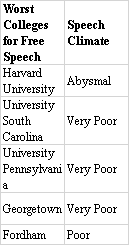The power of influence largely derives from the ways that it appeals to our cognitions and emotions. Professional influencers have clear, specific goals that they hope to achieve. They first strive to seize your attention. Then they seek to prepare you cognitively and emotionally to receive their message before they begin to deliver it. Once that is attained, they want to ensure that your frame of mind continues to remain as fully consistent with their goals as possible. In the language of psychology, that means the influencer offers “advance organizers” intended to create in you an enduring “mental set” that renders you continually susceptible to them. Further, because the influencer knows that his likelihood of success depends on how you align with him, he wants to make you feel that he values you. To do so, he might appeal to any of your thoughts and/or emotions. In the present chapter, we look at your mental functions that can be manipulated by those who want to exert their control, and how they might do so.
Most of our mental functions are steered by attention—attention that can be deliberate or incidental. “Attention capture” is a marketer’s first objective. They understand our primitive orienting response by which we turn our attention to a sudden and/or distinctive environmental stimulus. For instance, in the recent past, we all noticed that television commercials typically had broadcasted louder than the shows that they accompanied. After a citizen revolt, the United States government passed the Commercial Advertisement Loudness Mitigation (CALM) Act. However, on their website, (https://www.fcc.gov/consumers/guides/loud-commercials-tv), the current Federal Communications Commission (FCC) rationalizes that “Some commercials with louder and quieter moments may still seem ‘too loud’ to some viewers, but are still in compliance because average volume is the rule. The FCC does not monitor programming for loud commercials. We rely on people like you to let us know if they think there's a problem. If you have experienced what you believe is a violation of the rules regarding the loudness of commercial TV ads, you may file a complaint with the FCC at no cost.”
Whether watching television or strolling the avenue then, we ultimately are responsible for deciding how we direct our deliberate attention. That is a first step in maintaining control of our decision making. Individuals who deliberately attend to every new stimulus, fad, or circulating meme will find plenty of reasons to be influenced. Incidental attention, obviously, is less amenable to conscious control, but not totally intractable; we manage it by confining ourselves, as much as possible, to non-coercive places, people, and information. The more we position ourselves in open settings populated by open people, the more we can maintain and express our own opinions, and rationally evaluate the external influences exerted upon us. When we are in closed settings populated by chauvinistic people, we are less prepared and less inclined to resist their influences ... The preceding is a brief excerpt from my book -- Justifiably Paranoid: Resisting Intrusive and Malicious Influences https://www.amazon.com/Justifiably-Paranoid-Resisting-Intrusive-Influences/dp/1793449597?ref_=ast_author_dp
